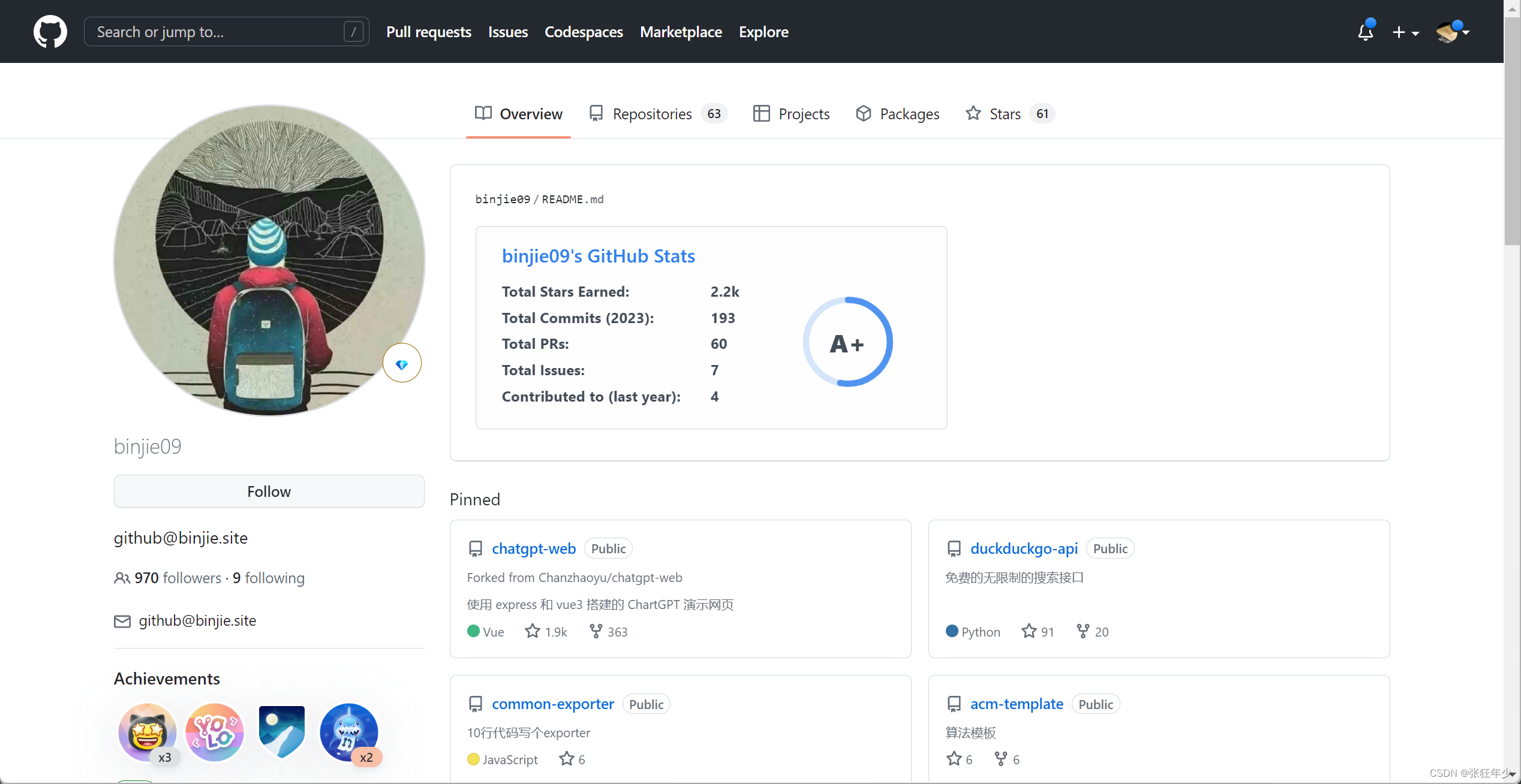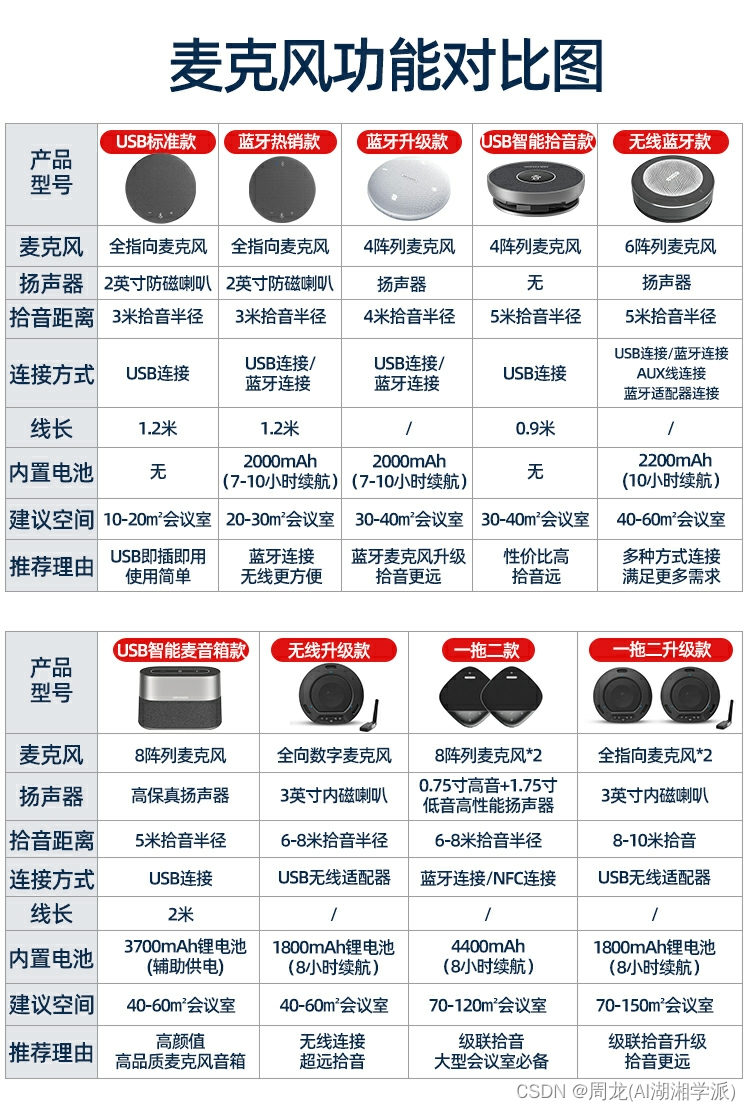前置知识
抽象语法树
基本介绍
AST(Abstract Syntax Tree)抽象语法树,当你有一段源代码的时候,是用于表示该源代码的抽象语法结构的树状图。对于不同的语言,有不同的抽象语法树结构,比如说C语言或者C++所使用的抽象语法树就和python的不一样。
类似于如果有这样一段源码:
#include<stdio.h>
int func(int a,int b)
{ int i;int c = 0;for(i=a;i<=b;i++){c+=i;}return c;
}
int main()
{int res = func(1,100);printf("res = %d\n",res);return 0;
}
用树状图分析:
用clang工具直接忽略标准头文件分析:
clang -Xclang -ast-dump -fsyntax-only -nostdinc test.c
得到分析结果如下图,然后这个结构是一整棵树。

用法
得到的树状图上有很多信息,标识了函数的类型,参数和参数类型,变量,变量类型等(有些只有一点信息,所以需要利用不同的分析工具来对比效果)。
这些数据可以用来分析函数结构、跳转函数、函数漏洞具体分析等。
LLVM
基本介绍
这里我直接拿来一个知乎答案:
LLVM是一个编译器框架。LLVM作为编译器框架,是需要各种功能模块支撑起来的,你可以将clang和lld都看做是LLVM的组成部分,框架的意思是,你可以基于LLVM提供的功能开发自己的模块,并集成在LLVM系统上,增加它的功能,或者就单纯自己开发软件工具,而利用LLVM来支撑底层实现。LLVM由一些库和工具组成,正因为它的这种设计思想,使它可以很容易和IDE集成(因为IDE软件可以直接调用库来实现一些如静态检查这些功能),也很容易构建生成各种功能的工具(因为新的工具只需要调用需要的库就行)。
这里是具体介绍。
因为我们需要使用它的接口,所以需要提前安装它和与python的第三方接口库。
整包安装方式
从这个网址上直接下载windows64版本,因为我用的win11。
并且把这个路径加入环境变量里面:???/???/bin/libclang.dll
python接口
pip install clang
正式开始
一般使用
词法分析
这里可以直接用于一般词法分析,就是把每个词分出来,但并不会生成行和类型分析。
from clang.cindex import Index, Config, CursorKind, TypeKind
libclangPath = r"???\???\LLVM\bin\libclang.dll"
#这个路径需要自己先在笔记本上安装
Config.set_library_file(libclangPath)
file_path_ = r"your_file_path"
index = Index.create()
tu = index.parse(file_path_)
AST_root_node = tu.cursor #cursor根节点
# 词法分析
cursor_content = ""
for token in AST_root_node.get_tokens():
# 针对根节点,调用get_tokens方法。print(token.spelling)# 相当于分离这个节点上的spelling属性 就是它的内容
这里只是最基础的分析,并没有涉及到复杂属性的筛选和区分,所以很简单,就是用于讲解的,真正的分词,可以使用定制化工具ctags来分析变量和函数,这样不仅可以知道函数的类型和变量的类型,还能知道它们所位于源代码里的具体位置,并且能告知是否是全局还是局部属性。
json生成
这里是筛选了比较多的节点上的属性,并且把它们整合到一个json文件里,如果它们是空,则代表它们可能是操作运算符或者某些关键字。
import json
from clang.cindex import Index, Config, CursorKind
class AST_Tree_json:def __init__(self, absolute_path):self.absolute_path = absolute_pathself.clang_path = r'??\???\LLVM\bin\libclang.dll'Config.set_library_file(self.clang_path)self.AST_Root = Index.create().parse(absolute_path).cursordef serialize_node(self, cursor):node_dict = {"kind": str(cursor.kind),"location": [cursor.extent.start.line, cursor.extent.start.column,cursor.extent.end.line, cursor.extent.end.column],"children": []}if cursor.spelling:node_dict["spelling"] = cursor.spellingprint('keywords: ', cursor.spelling)print('location: ', cursor.extent.start.line, cursor.extent.start.column,cursor.extent.end.line, cursor.extent.end.column)for child in cursor.get_children():child_dict = self.serialize_node(child)node_dict["children"].append(child_dict)return node_dictdef start(self):string_res = self.serialize_node(self.AST_Root)serialized_json = json.dumps(string_res, indent=4, ensure_ascii=False)import timelocal_time = time.localtime()date_time = time.strftime("%Y_%m_%d_%H_%M_%S", local_time)with open('./res_{}.json'.format(date_time),'w', encoding='utf-8') as file:file.write(serialized_json)file.close()# 虽然但是它能识别[]{};+-=,不能获取它们的标识符....而且获取不到值....# print(serialized_json)if __name__ == '__main__':path = r'your_file_path'ast_obj = AST_Tree_json(path)ast_obj.start()
虽然能够生成json文件,但是仍然能力有限,对于特殊字符的过滤并没有过滤出来。但是基本已经能生成较为详细的json文件内容,包含有内容的扫出来的所有属性的节点以及它们的所在的具体位置。
(start_line, start_column, end_line, end_column)指的是出现的(起始行, 起始列, 结束行,结束列)的位置。想要出具体位置的字符,则可能需要读取源代码片段并取它们的位置,并记录。
定制化使用
针对函数分析:
- 函数语句类型(声明、定义、调用)
- 函数具体位置
- 函数声明、定义、调用内容
- 函数参数和返回值的内容和类型
- 函数所在文件绝对路径
函数信息类设计
我分别写了几个类用于承接过滤出来的信息。
FunctionDeclaration:函数声明信息类FunctionDefinition:函数定义信息类FunctionCallExpress:函数调用信息类FunctionDump:函数数据包装类DefinitionCallExpressCombiner:函数定义调用拼接类SourceInfo:函数数据类FunctionPreprocessor预处理器类
源码部分:
1.FunctionDeclaration类
class FunctionDeclaration:def __init__(self, function_name=None, declared_location=None, declared_contents=None, return_types=None,parameter_types=None):self.function_name = function_nameself.declared_location = declared_locationself.declared_contents = declared_contentsself.return_types = return_typesself.parameter_types = parameter_typesself.kind = 'FUNCTION_DELCARATION'def __repr__(self):return f"函数名字: {self.function_name}\n函数语句类别: {self.kind}\n函数声明位置: {self.declared_location}\n" \f"函数参数类型: {self.parameter_types}\n函数返回值类型: {self.return_types}\n"
2.FunctionDefinition类
class FunctionDefinition:def __init__(self, function_name=None, definition_location=None, definition_contents=None):self.function_name = function_nameself.definition_location = definition_locationself.definition_contents = definition_contentsself.kind = 'FUNCTION_DEFINITION'def __repr__(self):return f"函数名字: {self.function_name}\n函数语句类别: {self.kind}\n" \f"函数定义位置: {self.definition_location}\n函数定义内容: {self.definition_contents}\n"
3.FunctionCallExpress类
class FunctionCallExpress:def __init__(self, function_name=None, call_express_location=None, call_express_contents=None):self.function_name = function_nameself.call_express_location = call_express_locationself.call_express_contents = call_express_contentsself.kind = 'FUNCTION_CALLEXPRESS'def __repr__(self):return f"函数名字: {self.function_name}\n函数语句类别: {self.kind}\n" \f"函数调用位置: {self.call_express_location}\n函数调用内容: {self.call_express_contents}\n"
4.FunctionDump类
class FunctionDump:def __init__(self, source_path):self.index = Index.create()self.translation_unit = self.index.parse(source_path)self.root_cursor = self.translation_unit.cursorself.function_declaration_list = []self.function_definition_list = []self.function_callexpress_list = []self.source_path = source_path# 启动函数def analyseLauncher(self):self.analyseRunner(self.root_cursor)# 实施函数def analyseRunner(self, cursor):if cursor.kind == CursorKind.FUNCTION_DECL or cursor.kind == CursorKind.CXX_METHOD:if not cursor.is_definition():name = cursor.spellinglocation = (cursor.extent.start.line, cursor.extent.start.column, cursor.extent.end.line,cursor.extent.end.column)parameter_types = self.get_parameter_types(cursor)return_type = self.get_return_type(cursor)function_declaration = FunctionDeclaration(function_name=name, declared_location=location,declared_contents=self.get_node_contents(cursor),return_types=return_type,parameter_types=parameter_types)self.function_declaration_list.append(function_declaration)definition_cursor = cursor.get_definition()if definition_cursor:definition_location = (definition_cursor.extent.start.line, definition_cursor.extent.start.column,definition_cursor.extent.end.line, definition_cursor.extent.end.column)definition_contents = self.get_node_contents(definition_cursor)function_definition = FunctionDefinition(function_name=definition_cursor.spelling,definition_location=definition_location,definition_contents=definition_contents)self.function_definition_list.append(function_definition)self.check_function_calls(self.root_cursor, cursor.spelling) # 这句for child in cursor.get_children():self.analyseRunner(child)def check_function_calls(self, cursor, function_name):if cursor.kind == CursorKind.CALL_EXPR and cursor.spelling == function_name:call_location = (cursor.extent.start.line,cursor.extent.start.column,cursor.extent.end.line,cursor.extent.end.column,)call_contents = self.get_node_contents(cursor) # 获取函数调用语句的内容function_callexpress = FunctionCallExpress(function_name=function_name, call_express_location=call_location,call_express_contents=call_contents)self.function_callexpress_list.append(function_callexpress)for child in cursor.get_children():self.check_function_calls(child, function_name)# 参数类型过滤def get_parameter_types(self, cursor):parameter_types = []for arg in cursor.get_arguments():arg_type = arg.type.spellingparameter_types.append(arg_type)if not parameter_types:return ["void"] # 返回 "void" 字符串表示无参函数return parameter_types# 返回值过滤def get_return_type(self, cursor):result_type = cursor.typeif cursor.spelling == "main":return "int"elif result_type.kind == TypeKind.FUNCTIONPROTO: # 除了void以外的类型return_type = result_type.get_result().spellingreturn return_typeelif result_type.kind == TypeKind.FUNCTIONNOPROTO: # voidreturn_type = result_type.get_result().spellingreturn return_typereturn None# 返回节点内容def get_node_contents(self, cursor):with open(self.source_path, 'r', encoding='utf-8') as file:contents = file.readlines()start_line = cursor.extent.start.line - 1start_column = cursor.extent.start.column - 1end_line = cursor.extent.end.line - 1end_column = cursor.extent.end.column - 1cursor_contents = ""for line in range(start_line, end_line + 1):if line == start_line:cursor_contents += contents[line][start_column:]elif line == end_line:cursor_contents += contents[line][:end_column + 1]else:cursor_contents += contents[line]return cursor_contents# 查找调用函数def show_function_details(self):### 函数声明print('~~函数声明~~')for item in self.function_declaration_list:print(item)print('~~函数定义~~')for item in self.function_definition_list:print(item)print('~~函数调用~~')for item in self.function_callexpress_list:print(item)
5.DefinitionCallExpressCombiner组合器类
# 组合器
class DefinitionCallExpressCombiner:def __init__(self, file_path):self.file_path = file_pathself.main_sign = Noneself.definition_contents = []self.mix_contents = []self.main_length = 0self.offset_length = 0def find_all_files(self, filepath):directory, _ = os.path.split(filepath)file_list = []for root, _, files in os.walk(directory):for file in files:if file.endswith('.c') or file.endswith('.cpp'):file_list.append(os.path.abspath(os.path.join(root, file)))return file_listdef find_all_headers(self, filepath):directory, _ = os.path.split(filepath)file_list = []for root, _, files in os.walk(directory):for file in files:if file.endswith('.h') or file.endswith('.hh'):path = os.path.abspath(os.path.join(root, file))if self.is_defined(path):file_list.append(path)return file_listdef is_defined(self, file_path):with open(file_path, "r") as file:content = file.read()return "{" in content or "}" in contentdef has_main_function(self, file_path):with open(file_path, "r") as file:content = file.read()return "int main(" in contentdef getDefinitionCodes(self):source_files = self.find_all_files(self.file_path)for file_path in source_files:with open(file_path, "r") as file:content = file.readlines()if self.has_main_function(file_path):if self.main_sign is None:self.main_sign = file_pathelse:passelse:if content:last_line = content[-1]pattern = r'.*\n'if re.findall(pattern, last_line):passelse:content[-1] = last_line + '\n'self.definition_contents += contentdef getDefinitionCodes_(self):source_files = self.find_all_files(self.file_path)header_files = self.find_all_headers(self.file_path)for file_path in header_files:with open(file_path, "r") as file:content = file.readlines()if content:last_line = content[-1]pattern = r'.*\n'if re.findall(pattern, last_line):passelse:content[-1] = last_line + '\n'self.definition_contents += contentfor file_path in source_files:with open(file_path, "r") as file:content = file.readlines()if self.has_main_function(file_path):if self.main_sign is None:self.main_sign = file_pathelse:passelse:if content:last_line = content[-1]pattern = r'.*\n'if re.findall(pattern, last_line):passelse:content[-1] = last_line + '\n'self.definition_contents += contentdef Combiner_(self):self.getDefinitionCodes_()path, name = split(self.main_sign)name = '._' + nametemp_path = os.path.join(path, name)with open(self.main_sign, "r", encoding='utf-8') as main_file:main_file_content = main_file.readlines()self.main_length = len(main_file_content)last_line = self.definition_contents[-1]pattern = r'.*\n'if re.findall(pattern, last_line):passelse:self.definition_contents[-1] = last_line + '\n'if main_file_content:self.mix_contents = self.definition_contents + main_file_contentnew_data = ["//" + line if line.startswith("#include") else line for line in self.mix_contents]with open(temp_path, 'w', encoding='utf-8') as temp_obj:temp_obj.writelines(new_data)self.offset_length = len(new_data) - self.main_lengthreturn temp_pathdef Combiner(self):self.getDefinitionCodes()path, name = split(self.main_sign)name = '.' + nametemp_path = os.path.join(path, name)with open(self.main_sign, "r", encoding='utf-8') as main_file:main_file_content = main_file.readlines()self.main_length = len(main_file_content)last_line = self.definition_contents[-1]pattern = r'.*\n'if re.findall(pattern, last_line):passelse:self.definition_contents[-1] = last_line + '\n'if main_file_content:self.mix_contents = self.definition_contents + main_file_contentnew_data = ["//" + line if line.startswith("#include") else line for line in self.mix_contents]with open(temp_path, 'w', encoding='utf-8') as temp_obj:temp_obj.writelines(new_data)self.offset_length = len(new_data) - self.main_lengthreturn temp_path
6.SourceInfo函数数据类
# 数据类
class SourceInfo:def __init__(self, filepath, source_obj=None, headers_obj_list=None):self.filepath = filepathself.source_obj = source_objself.headers_obj_list = headers_obj_list
7.FunctionPreprocessor预处理器类
class FunctionPreprocessor:def __init__(self, file_path, keyword=None):self.file_path = file_pathself.target_function_name = keywordself.headers_list = Noneself.exclude_headers_list = Noneself.main_flag = Noneself.header_defined = False# 产生除去头文件的临时文件XXX_.c/.cppdef virtualTempFile(self, filename):with open(filename, 'r', encoding='utf-8') as file:contents = file.readlines()temp_contents = []# 注释头文件....for item in contents:if item.startswith('#include'):item = '//' + item # 在头文件行之前添加注释符号temp_contents.append(item)path, name = split(filename)name = '.' + namenew_filename = os.path.join(path, name)with open(new_filename, 'w', encoding='utf-8') as file:file.writelines(temp_contents)return new_filename# 获取源文件的所有头文件列表def find_dependencies(self, filename):with open(filename, 'r', encoding='utf-8') as file:contents = file.readlines()headers = []pattern = r'#include\s*["]\s*(\w+\.h)\s*["]'for item in contents:match = re.search(pattern, item)if match:dependency = match.group(1)headers.append(dependency)return headersdef find_all_headers(self, filepath):directory, _ = os.path.split(filepath)for root, _, files in os.walk(directory):for file in files:if file.endswith('.h') or file.endswith('.hh'):path = os.path.abspath(os.path.join(root, file))if self.is_defined(path):self.header_defined = Truedef is_defined(self, file_path):with open(file_path, "r") as file:content = file.read()return "{" in content or "}" in content# 遍历所有同类型文件def find_all_files(self, filepath):directory, _ = os.path.split(filepath)file_list = []for root, _, files in os.walk(directory):for file in files:if file.endswith('.c') or file.endswith('.cpp'):absolute_path = os.path.abspath(os.path.join(root, file))file_list.append(absolute_path)if self.has_main_function(absolute_path):self.main_flag = absolute_pathreturn file_listdef has_main_function(self, file_path):with open(file_path, "r") as file:content = file.read()return "int main(" in contentdef multiCallExpressCombiner(self, filepath):combiner = DefinitionCallExpressCombiner(filepath)temp_filepath = combiner.Combiner()call_analyzer = FunctionDump(temp_filepath)call_analyzer.analyseLauncher()os.remove(temp_filepath)offset = combiner.offset_lengthfunction_declaration_list = []function_definition_list = []function_call_express_list = []for item in call_analyzer.function_declaration_list:if item.declared_location[0] > offset:start_line, start_index, end_line, end_index = item.declared_locationitem.declared_location = (start_line - offset, start_index, end_line - offset, end_index)function_declaration_list.append(item)else:continuefor item in call_analyzer.function_definition_list:if item.definition_location[0] > offset:start_line, start_index, end_line, end_index = item.definition_locationitem.definition_location = (start_line - offset, start_index, end_line - offset, end_index)function_definition_list.append(item)else:continuefor item in call_analyzer.function_callexpress_list:if item.call_express_location[0] > offset:start_line, start_index, end_line, end_index = item.call_express_locationitem.call_express_location = (start_line - offset, start_index, end_line - offset, end_index)function_call_express_list.append(item)else:continue# 覆盖原文call_analyzer.function_declaration_list = function_declaration_listcall_analyzer.function_definition_list = function_definition_listcall_analyzer.function_callexpress_list = function_call_express_listreturn call_analyzerdef _multiCallExpressCombiner(self, filepath):combiner = DefinitionCallExpressCombiner(filepath)temp_filepath = combiner.Combiner_()call_analyzer = FunctionDump(temp_filepath)call_analyzer.analyseLauncher()os.remove(temp_filepath)offset = combiner.offset_lengthfunction_declaration_list = []function_definition_list = []function_call_express_list = []for item in call_analyzer.function_declaration_list:if item.declared_location[0] > offset:start_line, start_index, end_line, end_index = item.declared_locationitem.declared_location = (start_line - offset, start_index, end_line - offset, end_index)function_declaration_list.append(item)else:continuefor item in call_analyzer.function_definition_list:if item.definition_location[0] > offset:start_line, start_index, end_line, end_index = item.definition_locationitem.definition_location = (start_line - offset, start_index, end_line - offset, end_index)function_definition_list.append(item)else:continuefor item in call_analyzer.function_callexpress_list:if item.call_express_location[0] > offset:start_line, start_index, end_line, end_index = item.call_express_locationitem.call_express_location = (start_line - offset, start_index, end_line - offset, end_index)function_call_express_list.append(item)else:continue# 覆盖原文call_analyzer.function_declaration_list = function_declaration_listcall_analyzer.function_definition_list = function_definition_listcall_analyzer.function_callexpress_list = function_call_express_listreturn call_analyzerdef source_runner(self, init_filename):filelist = self.find_all_files(init_filename)self.find_all_headers(init_filename)source_info_list = []if len(filelist) < 2 and not self.header_defined:for file in filelist:headers_objs = []# 源文件source_path = self.virtualTempFile(file)headers_path = self.find_dependencies(source_path)path, name = split(source_path)for header in headers_path:header_path = path + '/' + headersource_path_ = self.virtualTempFile(header_path)headers_analyzer = FunctionDump(source_path_)headers_analyzer.analyseLauncher()# headers_analyzer.show_function_details()headers_objs.append((file, header_path, headers_analyzer))os.remove(source_path_)analyzer = FunctionDump(source_path)analyzer.analyseLauncher()os.remove(source_path)# analyzer.show_function_details()per_source_info = SourceInfo(filepath=file, source_obj=analyzer, headers_obj_list=headers_objs)source_info_list.append(per_source_info)elif len(filelist) >= 2 and not self.header_defined:for file in filelist:headers_objs = []if file != self.main_flag:# 标记是不是main# 源文件source_path = self.virtualTempFile(file)headers_path = self.find_dependencies(source_path)path, name = split(source_path)for header in headers_path:header_path = path + '/' + headersource_path_ = self.virtualTempFile(header_path)headers_analyzer = FunctionDump(source_path_)headers_analyzer.analyseLauncher()# headers_analyzer.show_function_details()headers_objs.append((file, header_path, headers_analyzer))os.remove(source_path_)analyzer = FunctionDump(source_path)analyzer.analyseLauncher()os.remove(source_path)else:# 是main源文件 开始复杂拼装analyzer = self.multiCallExpressCombiner(file)per_source_info = SourceInfo(filepath=file, source_obj=analyzer, headers_obj_list=headers_objs)source_info_list.append(per_source_info)elif self.header_defined:for file in filelist:headers_objs = []if file != self.main_flag:# 标记是不是main# 源文件source_path = self.virtualTempFile(file)headers_path = self.find_dependencies(source_path)path, name = split(source_path)for header in headers_path:header_path = path + '/' + headersource_path_ = self.virtualTempFile(header_path)headers_analyzer = FunctionDump(source_path_)headers_analyzer.analyseLauncher()headers_objs.append((file, header_path, headers_analyzer))os.remove(source_path_)analyzer = FunctionDump(source_path)analyzer.analyseLauncher()os.remove(source_path)else:headers_path = self.find_dependencies(file)path, name = split(file)for header in headers_path:header_path = path + '/' + headersource_path_ = self.virtualTempFile(header_path)headers_analyzer = FunctionDump(source_path_)headers_analyzer.analyseLauncher()headers_objs.append((file, header_path, headers_analyzer))os.remove(source_path_)# 是main源文件 开始复杂拼装analyzer = self._multiCallExpressCombiner(file)per_source_info = SourceInfo(filepath=file, source_obj=analyzer, headers_obj_list=headers_objs)source_info_list.append(per_source_info)return source_info_list
函数跳转函数实现
- 过滤选中字符
selected_text - 函数跳转菜单
UI连接函数 - 三个函数跳转逻辑编写
gotoDeclaration:针对于右键转到声明的函数
gotoDefinition:针对右键转到定义的函数
gotoCallExpress:针对右键转到调用的函数 - 源数据的获取
getFuncAnalyzer:接口用于获取最新的函数分析数据,当文本编辑器里的内容发生过更改或者新建文件之后,刷新数据内容。
源代码
1.过滤选中字符串getSelectdFunctionName
def getSelectdFunctionName(self, input_string):import repattern = r'\b(\w+)\s*\('match = re.search(pattern, input_string)if match:return match.group(1)words = re.findall(r'\b\w+\b', input_string) # 提取字符串中的单词列表for word in words:if re.match(r'^[a-zA-Z_][a-zA-Z0-9_]*$', word): # 判断单词是否符合函数名的命名规则return word # 返回第一个符合要求的单词作为函数名return None
2.右键菜单UI逻辑
def show_context_menu(self, point):self.context_menu = self.__editor.createStandardContextMenu()# 添加默认选项self.context_menu.insertSeparator(self.context_menu.actions()[0])ui_icon = self.config_ini['main_project']['project_name'] + self.config_ini['ui_img']['ui_turn_to']action_goto_declaration = QAction("转到声明", self)action_goto_declaration.setIcon(QIcon(ui_icon))action_goto_declaration.triggered.connect(self.gotoDeclaration)action_goto_definition = QAction("转到定义", self)action_goto_definition.setIcon(QIcon(ui_icon))action_goto_definition.triggered.connect(self.gotoDefinition)action_goto_call_express = QAction("转到调用", self)action_goto_call_express.setIcon(QIcon(ui_icon))action_goto_call_express.triggered.connect(self.gotoCallExpress)# 分隔符self.context_menu.insertSeparator(self.context_menu.actions()[0])self.context_menu.insertAction(self.context_menu.actions()[0], action_goto_declaration)self.context_menu.insertAction(self.context_menu.actions()[1], action_goto_definition)self.context_menu.insertAction(self.context_menu.actions()[2], action_goto_call_express)# 应用self.context_menu.exec_(self.__editor.mapToGlobal(point))def gotoDeclaration(self):self.gotoDeclarationSign.emit()def gotoDefinition(self):self.gotoDefinitionSign.emit()def gotoCallExpress(self):self.gotoCallExpressSign.emit()
text_editor_obj.gotoDeclarationSign.connect(lambda: self.gotoDeclaration(text_editor_obj))
text_editor_obj.gotoDefinitionSign.connect(lambda: self.gotoDefinition(text_editor_obj))
text_editor_obj.gotoCallExpressSign.connect(lambda: self.gotoCallExpress(text_editor_obj))
3.gotoDeclaration gotoDefinition gotoCallExpress
# 声明跳转
def gotoDeclaration(self, editor):position, selected_text = editor.getSelected_Position_Content()locations = []absolute_path = editor.filepath + '/' + editor.filename# 过滤选中的字符selected_text = editor.getSelectdFunctionName(selected_text)if self.source_data == None or self.current_source_path == None:self.source_data = self.getFuncAnalyzer(editor=editor)self.current_source_path = os.path.normpath(absolute_path)if self.source_data and self.current_source_path == None:self.current_source_path = os.path.normpath(absolute_path)elif self.current_source_path and self.current_source_path != os.path.normpath(absolute_path):self.current_source_path = os.path.normpath(absolute_path)else:passlocation = NoneisSource = True# 头文件跳源文件if '.h' in editor.filename or '.hh' in editor.filename:isSource = Falseif self.source_data:for data in self.source_data:# 文件名isFind = Falsefilename = data.filepath# 声明function_declaration_list = data.source_obj.function_declaration_list# 头文件headers_obj_list = data.headers_obj_list# 查源文件...for per_obj in function_declaration_list:if selected_text == per_obj.function_name and per_obj.declared_contents:location = per_obj.declared_locationisFind = Truebreakif not isFind and location == None:# 头文件遍历current_editor = Nonefor per_obj in headers_obj_list:filepath, header_path, item = per_objpath, name = split(filepath)path, name_ = split(header_path)# 声明for i in item.function_declaration_list:if selected_text == i.function_name and i.declared_contents:location = i.declared_locationif isSource:self.create_new_open_tab(header_path)current_editor = self.ui.text_editor.currentWidget()else:# 关键!current_editor = editorbreakif location is not None and current_editor is not None:start_line = location[0] - 1start_index = location[1] - 1end_line = location[2] - 1end_index = location[3] - 1text_location = [(start_line, start_index, end_line, end_index)]current_editor.highlight_function_declaration(text_location)elif isFind and location is not None:if location is not None:start_line = location[0] - 1start_index = location[1] - 1end_line = location[2] - 1end_index = location[3] - 1text_location = [(start_line, start_index, end_line, end_index)]editor.highlight_function_declaration(text_location)# 定义跳转
def gotoDefinition(self, editor):position, selected_text = editor.getSelected_Position_Content()locations = []absolute_path = editor.filepath + '/' + editor.filenameselected_text = editor.getSelectdFunctionName(selected_text)if self.source_data == None or self.current_source_path == None:self.source_data = self.getFuncAnalyzer(editor=editor)self.current_source_path = os.path.normpath(absolute_path)if self.source_data and self.current_source_path == None:self.current_source_path = os.path.normpath(absolute_path)elif self.current_source_path and self.current_source_path != os.path.normpath(absolute_path):self.current_source_path = os.path.normpath(absolute_path)else:passlocation = NoneisSource = Trueif '.h' in editor.filename or '.hh' in editor.filename:isSource = Falseif self.source_data:for data in self.source_data:# 文件名isFind = Falsefilename = data.filepath# 定义function_definition_list = data.source_obj.function_definition_list# 头文件headers_obj_list = data.headers_obj_list# 查源文件...for per_obj in function_definition_list:if selected_text == per_obj.function_name and per_obj.definition_contents:location = per_obj.definition_locationisFind = Truebreakif not isFind and location == None:# 头文件遍历for per_obj in headers_obj_list:filepath, header_path, item = per_objpath, name = split(filepath)path, name_ = split(header_path)# 定义for i in item.function_definition_list:if selected_text == i.function_name and i.definition_contents:location = i.definition_locationif isSource:self.create_new_open_tab(header_path)current_editor = self.ui.text_editor.currentWidget()else:current_editor = editorbreakif location is not None and current_editor is not None:start_line = location[0] - 1start_index = location[1] - 1end_line = location[2] - 1end_index = location[3] - 1text_location = [(start_line, start_index, end_line, end_index)]current_editor.highlight_function_definition(text_location)elif isFind and location is not None:another_editor = editorif os.path.normpath(absolute_path) != os.path.normpath(filename):self.create_new_open_tab(os.path.normpath(filename))another_editor = self.ui.text_editor.currentWidget()if location is not None:start_line = location[0] - 1start_index = location[1] - 1end_line = location[2] - 1end_index = location[3] - 1text_location = [(start_line, start_index, end_line, end_index)]another_editor.highlight_function_definition(text_location)
# 调用跳转
def gotoCallExpress(self, editor):position, selected_text = editor.getSelected_Position_Content()locations = []absolute_path = editor.filepath + '/' + editor.filenameselected_text = editor.getSelectdFunctionName(selected_text)if self.source_data == None or self.current_source_path == None:self.source_data = self.getFuncAnalyzer(editor=editor)self.current_source_path = os.path.normpath(absolute_path)if self.source_data and self.current_source_path == None:self.current_source_path = os.path.normpath(absolute_path)elif self.current_source_path and self.current_source_path != os.path.normpath(absolute_path):self.current_source_path = os.path.normpath(absolute_path)else:passisSource = Trueif '.h' in editor.filename or '.hh' in editor.filename:isSource = Falseif self.source_data:for data in self.source_data:# 文件名filename = data.filepath# 调用function_callexpress_list = data.source_obj.function_callexpress_list# 记得清空 不然GGlocations = []for per_obj in function_callexpress_list:if selected_text == per_obj.function_name and per_obj.call_express_contents:location = per_obj.call_express_locationstart_line = location[0] - 1start_index = location[1] - 1end_line = location[2] - 1end_index = location[3] - 1text_location = (start_line, start_index, end_line, end_index)locations.append(text_location)if not isSource and locations != []:self.create_new_open_tab(filename)another_editor = self.ui.text_editor.currentWidget()another_editor.highlight_function_call_express(locations)elif isSource and locations != []:if os.path.normpath(absolute_path) != os.path.normpath(filename):self.create_new_open_tab(os.path.normpath(filename))another_editor = self.ui.text_editor.currentWidget()another_editor.highlight_function_call_express(locations)else:editor.highlight_function_call_express(locations)
4.getFuncAnalyzer
def getFuncAnalyzer(self, editor):filename = editor.filenamefilepath = editor.filepathabsolute_path = filepath + '/' + filenamefunc_dump = FunctionPreprocessor(absolute_path)source_data = func_dump.source_runner(absolute_path)return source_data
基本逻辑流程图
markdown画流程图真的是很难画啊,用飞书就是在救赎自己
奇淫技巧
由于我使用的接口分析信息的时候,会自动分析大量的头文件信息,导致我在分析过滤的时候会输出一大堆标准库里面的函数信息,这样会阻碍我对于自定义函数的分析和处理。
这个接口调用的方式是传入一个有内容的代码文件然后分析,如果能换成字符串那将会很好,但是不行,所以我选择手动注释掉文件里的头文件,然后把临时文件传入分析类里分析,但是保留原来文件的内容在文本编辑器上,分析结束之后立刻删除该临时文件,这样就能造成我读取的是源码分析的错觉。
后面的碎碎念
起因
其实是实习的项目内容,但是我挑选了一部分(我觉得我在做的时候饱受折磨的)来展示。因为几乎没有得到明显的参考资料,大部分是自己手搓的,还有根据大爹chatgpt3.5的指点,虽然它的指点也很烂,写出来的代码还不如我手搓的。
给后辈的礼物
也许下一次他们这个还是写这个项目,可以拿来参考参考,但是跑不跑得通又是另一回事了。我果然有当老师的天赋吗,我修bug的能力一流…或者有些人被迫拿这个类来做文本编辑器…

源码
我放在github上了,但是配置文件是加密的,所以请仔细查看README里面的内容。
我的部分会详细说明,不是我的部分,自己参悟0-0!
源码在这里
上篇在这里





